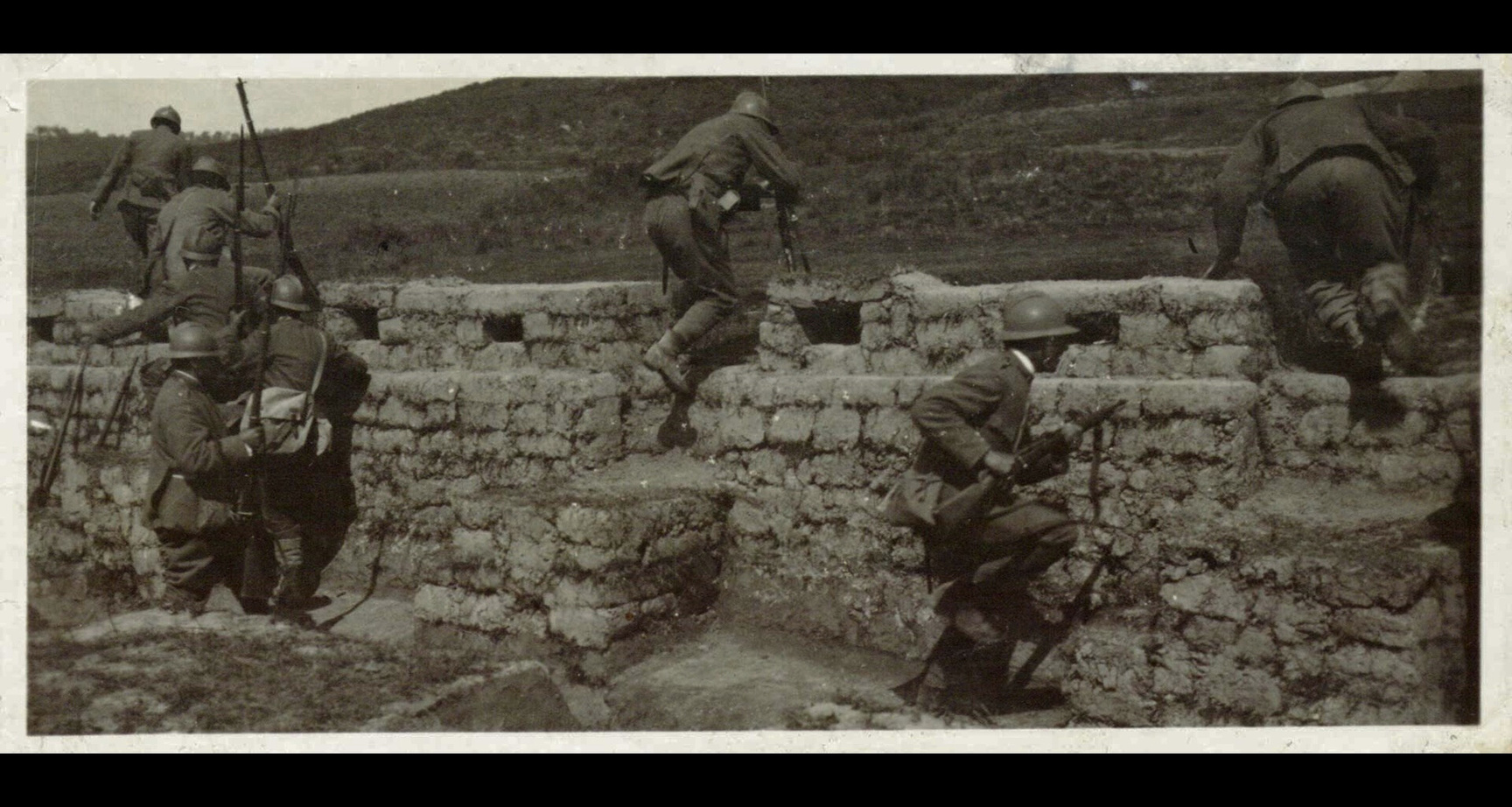
Coping through War in:
All Quiet on The Western Front
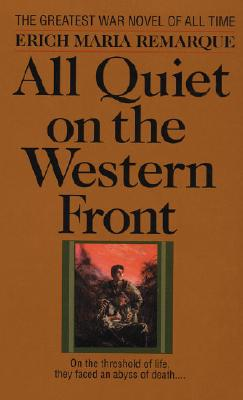
All Quiet on the Western Front written by Erich Maria Remarque tells the story of Paul Bäumer and his experience as a very young German soldier during World War 1. (WW1 - 1914-1918)
Throughout the book, it is shown that Paul gradually develops worsening trauma as a result of fighting on the front lines.
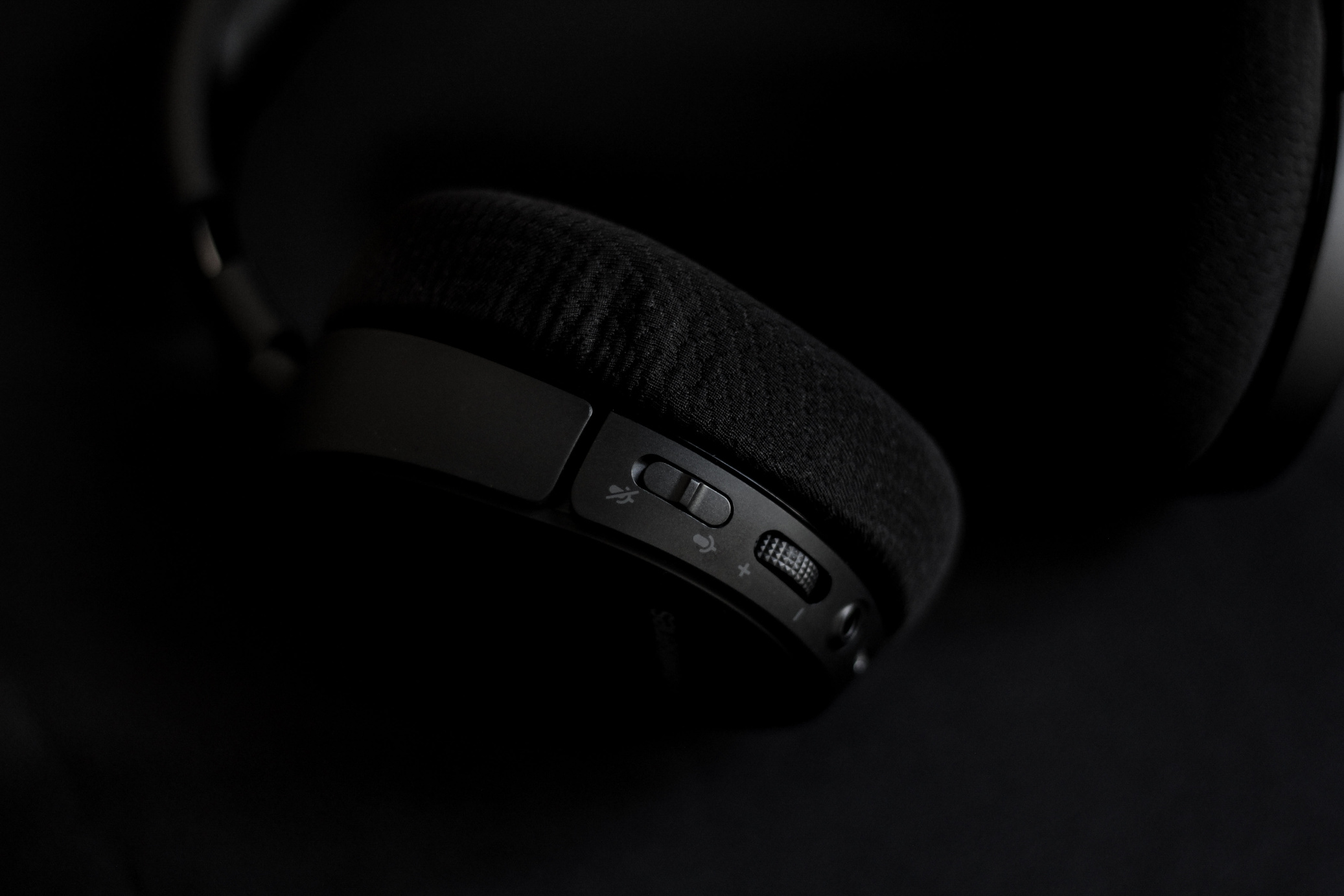
Shell Shock
A term created during World War 1 used to describe the lasting effects of extreme trauma from the war.
Now referred to as PTSD (post traumatic stress disorder), and applies to situations other than war as well.
Symptoms
- Helplessness
- Fear/Panic
- Depression
- Inability to emotionally, socially, and cognitive functions
- Tics
- Convolutions
- Muscle spasms
- Paralysis
- Shakes
- Memory issues
World War 1 was when the term shell shock originated. The condition existed well before this time, but was not yet widely recognized until the first world war.
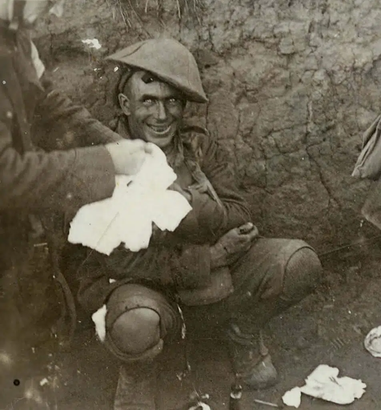
During World War 1, thousands of soldiers would be put into hospitals experiencing these symptoms with no visible physical injuries.
Doctors soon began researching and experimenting on soldiers to find a cause for these symptoms.
They took advantage of this time to conduct many studies in psychiatry.
Treatment of "shell shock" was recognized by improving symptoms as well as the ability to return to war.
Soon though, military guidelines regarding this condition were made. Soldiers affected with shell shock were not permitted to return to the front lines due to being a liability to the military's strength, and were deemed unfit to serve.
Many people at that time speculated that soldiers affected with shell shock were simply mentally weak, cowardly, lazy, unpatriotic, and selfish.
Few people believed that shell shock was the consequence of fighting in the war.
The term "shell shock: evolved into "war neurosis", and later to "battle fatigue", is now referred to as PTSD.
It is seven times more likely for soldiers who enlist into the army that are under the age of 25 to develop PTSD.
Shell Shock Represented in
All Quiet on the Western Front
Because he joined the military right after high school, Paul had felt as if the war was his only purpose and he had no where else to go. Any place he went or anything he did, the war would always be in the back of his mind.
He found it difficult to relate to his family and feel comfortable in his home, the things he used to know now felt unfamiliar or distant.
Compared to older soldiers, young men had not yet experienced the "real world" yet. While the older soldier had something to return to (wives, children, or jobs), the younger would have to learn how to live as an adult while baring the memories of the war.
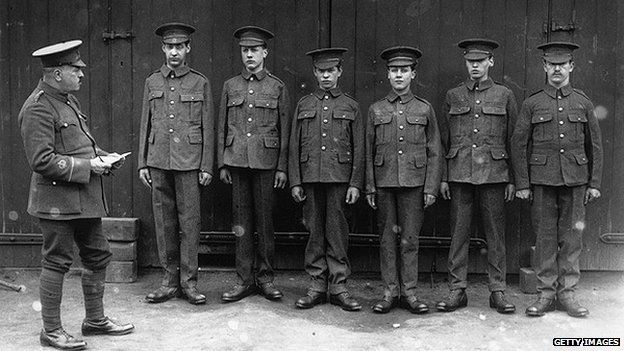
Teenage soldiers during WW1
The war swept us away. For the others, the older men, it is but an interruption. They are able to think beyond it. We, however, have been gripped by it and do not know what the end may be. We know only that in some strange and melancholy way we have become a waste land.
(page 20)
One thing that greatly helped Paul during his time as a soldier were his comrades.
Camaraderie is a common theme in many true WW1 stories. Some say they enlisted with their friends, or fought alongside them in battle, spent free-time with one another, it was the same for Paul.
Paul developed unbreakable bonds with the fellow soldiers in his Company. Some were already his friends from school.
Paul found comfort in his comrades knowing that they were the only ones who understood and felt the same feelings he did.
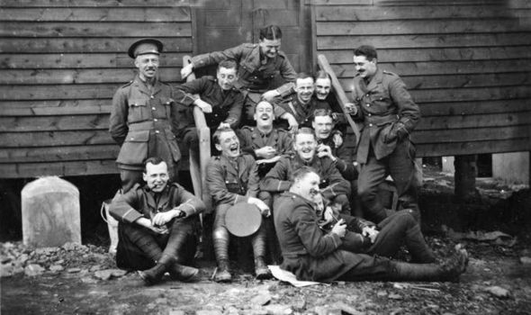
Pals Batallion: British soldiers who enlisted under the promise that they would be able to fight alongside their friends
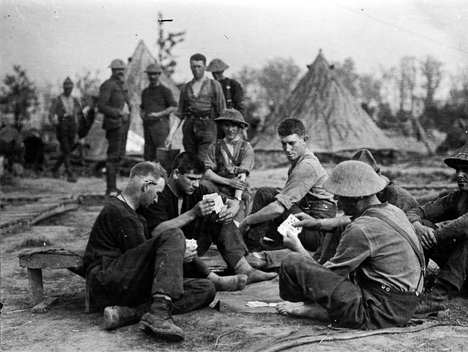
Soldiers playing cards
We sit opposite one another, Kat and I, two soldiers in shabby coats, cooking a goose in the middle of the night, We don't talk much, but I believe we have a more complete communion with one another than even lovers have.
In order to survive during battle, Paul learned to only focus on staying alive and complete their mission. They develop an animal instinct, everything they do is in the effort to live.
Unfortunately even when soldiers aren't in battle or near any danger, this instinct still remains. With no surprise, experiencing constant firing of guns and exploding shells leaves its impression on the mind.
Our thoughts are like clay, they are moulded, with the changes of the days;- when we are resting they are good; under fire, they are dead.
(page 271)
Paul experienced fear, panic, helplessness, depression, memory issues, and inability to think or function properly as symptoms of shell shock,
As the novel progresses, he talks more frequently about how to war has effected him and his worsening mental state.
As soldier, they are required to let go of their humanity and become a robot-like machines for the sake of the war effort.
But people aren't that strong, and eventually all of the killing will take a toll on the mind, and memories won't easily go away.
Around 250,000 soldiers during World War 1 developed PTSD.
That is about 20% of veterans.
Mini Review Quiz
- 20-55 years
- 19-40 years
- 15-40 years
- 17-45 years
What was the age limit to enlist into the military?
What were the dates for WW1?
- 1913-1920
- 1914-1918
- 1939-1945
- 1914-1919
- 10 times
- 7 times
- 15 times
- 4 times
How much more likely are soldier under the age of 25 to develop PTSD?
What is another name for shell shock?
- hysteria
- war neurosis
- battle neurosis
- war fatigue
The End